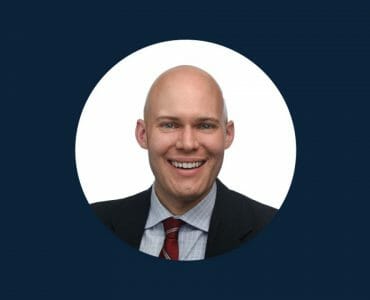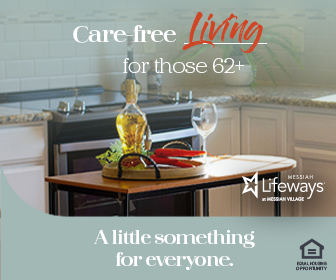Our children are our world. For my wife and me, our priorities for my son and daughter are to love, nurture and provide for them for a lifetime. Eventually as they leave the nest, our wish for them is to grow up into caring, intelligent, resilient, successful adults. However, despite their own successes and achievements or their lack of, we will also want to leave them a legacy. Legacy comes in many forms, but in this case I am talking about a financial legacy. Big or small we want to leave something behind for them to invest, enjoy or simply supplement their financial status. Most of us would agree, it’s part of being a good parent, a way for us continue to give and support them even after we are gone.
With that said, as a parent ages and retires that idea of a leaving a legacy starts to evolve a bit. Life gets in the way, like the cost of living, health problems, and crisis can arise. However, if we are fortunate enough, we can make it through to the other side. Therefore, if we have been smart with our investments, retirement, and managing our money, hopefully there will be a sizable nest egg to live on and enjoy after retirement and subsequently pass on to our kids – right?
Here’s where all this build up is leading to. I’m not a financial expert, so I’m not necessarily focusing on the size of that nest egg, but rather how prudent and accountable we will be with that money. Upon retirement – yes we’d like to travel, buy that RV, put that addition on the house, or as mentioned earlier leave an inheritance to family upon our demise. However, there is a very vital piece missing from this spending plan. And aside from having money to live on, pay bills, taxes, and other incidentals, we need to think about chronic health issues and the subsequent medical care and in many cases the need for long-term care, like nursing care or personal care. Unfortunately, there are many misconceptions about the costs, paying for and needing long-term care. According to a 2012 Metlife Mature Market Survey the national average cost of a nursing care is $90,520/year and assisted living or personal care comes in at $42,600 annually. Furthermore, for those who need care but don’t want to move from their own home, at $21/hour nationally you could end up paying $43,680 a year for 8 hours of care per day for 5 days a week for non-medical home care services. Next, most of these costs will be directly out-of-pocket or indirectly through privately purchased long-term care insurance coverage until you deplete all those assets. Lastly, to compound these continually inflating costs is the length of time people will need long-term care. It’s great that medicine and science are helping us live longer, but one of the consequences is that we will require more money to live on because we aren’t dying 5 or 10 years after retirement. It’s more like 15 or 20.
I digress – so what’s my point? First, that big shiny nest egg may not be as big as you might think. Also we need to change the conversation and our mindset on leaving that financial legacy to our descendants. Many people are aware of this dilemma, and they taking the right and legal steps to ensure all bases are covered. They realize their first priority is to cover their own healthcare and medical needs, and then what’s leftover can go to their loved ones. However, there are some estate-planning techniques out there that while legal are a bit unsavory. There’s a whole industry predicated on helping adult children “shelter” a parent’s assets, which could eventually put the burden on other taxpayers via Medicaid (a.k.a. Medical Assistance) to pay for nursing home care if they ever need it. Fortunately, there are some fail safes in place like the five year look back period required when someone applies for Medicaid. This can track back 60 months of spending to insure no large gifts or transfer of assets or properties were sold below market value which, if uncovered, could result in a period of ineligibility for Medicaid for a period equal to the amount those assets would have paid for nursing care. Therefore, this would render someone who is unable to pay privately and not yet eligible for Medicaid no way to pay for their care. Typically in this situation the nursing home would have to “eat” the cost. Additionally, even if someone lawfully transfers assets outside the 5 year look back period and are eligible day one for medical assistance, it can still create a precarious situation. As a Medicaid patient from day one, it really limits your choice of nursing home. Many nursing homes limit their amount of Medicaid patients. So it simply limits the number of nursing homes for you to pick from.
Along with state-funded medical assistance for nursing care, many facilities such as Messiah Village offer benevolent or charitable care in personal care and even in independent living. Quite often in non-profit communities, it’s a part of our mission to care for our residents even they have depleted all their assets. Our benevolent care is funded by the generosity of Messiah Village, its residents, families, staff (past and present), plus many other donor sources. Applying for benevolent care follows a similar process to the Medicaid application. So essentially, we need full disclosure of usable assets to prove a resident’s financial hardship. Over the years it has been a pretty elementary process. But as healthcare costs rise and consumers become savvier, the practice of sheltering, shielding or protecting assets is becoming more prevalent. Again while this practice is legal it begins to put a strain on systems like Medicaid and our benevolent care fund. It forces the government and us to dig deeper for financial disclosure and could limit the amount of free care we can provide. For our fiscal year ending June 30, Messiah Village will have paid out nearly $4 million in charitable care dollars. This includes the contractual loss we absorb from the low Medicaid per diem reimbursement as well as the direct benevolent care we provide. And while most have been good stewards with their money, spent down and will deservedly benefit from our charitable care, there are others that will receive it too, despite having manipulated the system.
Programs like Medicaid and our benevolent care program were created to care for the needy. Otherwise, we have an obligation to pay for our own care or to protect our wealth with private insurance and not by sheltering it to get early eligibility. As I stated in the very beginning, I love my kids and I will care and provide for them for as long as I can, but I expect my kids to understand and for myself to remain prudent if I need tap into and use part or all of my legacy to pay for my care.





